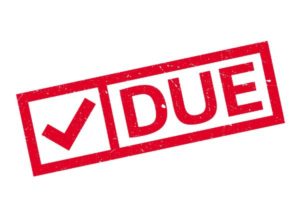
The CP501 notice is a bill for unpaid taxes from the IRS. This notice is less aggressive than some other IRS notices, but it can still result in consequences if you don’t take action to resolve your tax debt problems.
There are several ways to respond to a CP501 notice, so follow these steps as they apply to your situation.
Do You Owe the Tax?
The notice will inform you how much you owe and for what tax year. If you already know you owe the tax, then you can start thinking about your tax resolution options.
However, you may have arguments for disputing the tax, or you may not have known you owed the tax. In this case, you should dispute the tax liability as soon as possible. Consult a tax attorney for help with this process.
Tax Resolution Options
If you can pay the bill in full by the due date on the notice, you’ll avoid penalties and other consequences. However, you still have several options if you can’t pay right now, including the following:
- Set up a monthly installment agreement with the IRS.
- Ask to have your account classified as currently not collectible.
- Submit an Offer in Compromise to settle the tax debt for less than the amount you owe.
- Request innocent spouse relief for joint tax debt attributable to your spouse or former spouse.
While any of these requests are pending, the IRS will generally not attempt to seize your property. Some of these tax resolution strategies may fit your situation better than others, so consult with a tax resolution attorney to find the best option for your case.
If You Don’t Respond
The worst thing you can do is ignore the CP501 notice. The IRS follows a typical pattern when seeking collection of unpaid tax debt, and the consequences become severe as time goes on.
You could face any of the following repercussions if you ignore the CP501 notice:
- The IRS can file a Notice of Federal Tax Lien in the public records which notifies other creditors of the IRS interest in your property.
- Late payment penalties and interest will continue to accrue, adding to your balance.
- Eventually, the IRS may try to collect by seizing your bank account funds or garnishing a portion of your paychecks.
Avoid these problems by acting quickly and getting advice from a tax attorney.
The Gartzman Law Firm can find the best tax resolution option for your situation. Use our contact form to request a consultation with an Atlanta tax resolution attorney.

